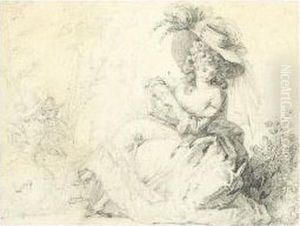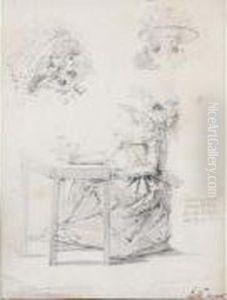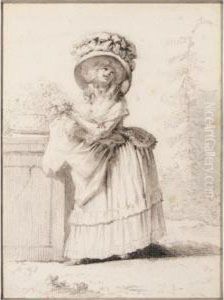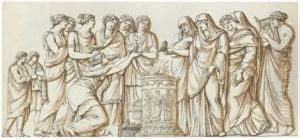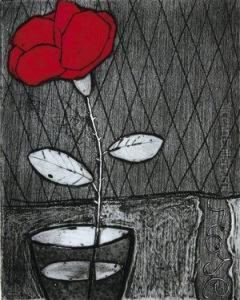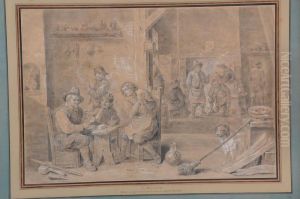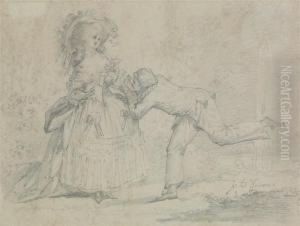Alexandre Moitte Paintings
Alexandre Moitte was a prominent French sculptor and engraver born in 1746 in Paris, France. He hailed from a family deeply rooted in the arts; his father, Pierre-Etienne Moitte, was an engraver, which undoubtedly influenced Alexandre's early exposure and inclination towards the arts. Moitte demonstrated remarkable talent from a young age, honing his skills under the tutelage of renowned sculptors such as Jean-Baptiste Pigalle and Augustin Pajou. These experiences shaped his artistic direction and laid the foundation for his future contributions to French sculpture.
Moitte's career flourished during a period of significant political and social upheaval in France, marked by the French Revolution and the subsequent Napoleonic era. Despite the tumultuous times, or perhaps because of them, Moitte's work reflected both the classical influences of his mentors and the evolving tastes of the era. He was adept in various mediums but is particularly noted for his work in marble and bronze. His sculptures often depicted themes of classical antiquity, heroism, and the ideals of the Enlightenment, resonating with the revolutionary sentiments of liberty and human dignity prevalent at the time.
Among Moitte's notable works are contributions to the decorative sculptures of the Panthéon in Paris, a project that epitomized the era's blend of classical reverence and revolutionary fervor. His ability to capture both the physical and spiritual essence of his subjects earned him accolades and commissions from significant figures of the time, including members of the French royalty and later, the Napoleonic regime.
Moitte's legacy, however, extends beyond his artistic contributions. He was an active participant in the intellectual and artistic communities of Paris, contributing to the discourse on art and its social responsibilities during a period of great change. His works, characterized by their emotional depth and technical mastery, continue to be studied and admired for their reflection of the human condition and the tumultuous era in which he lived.
Alexandre Moitte passed away in 1810 in Paris. His death marked the end of an era for French sculpture, but his influence persisted, inspiring future generations of artists with his dedication to classical beauty, emotional expression, and the ideals of liberty and human dignity that characterized the Enlightenment and the French Revolution.
